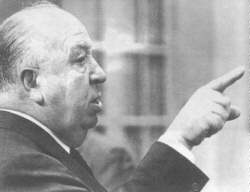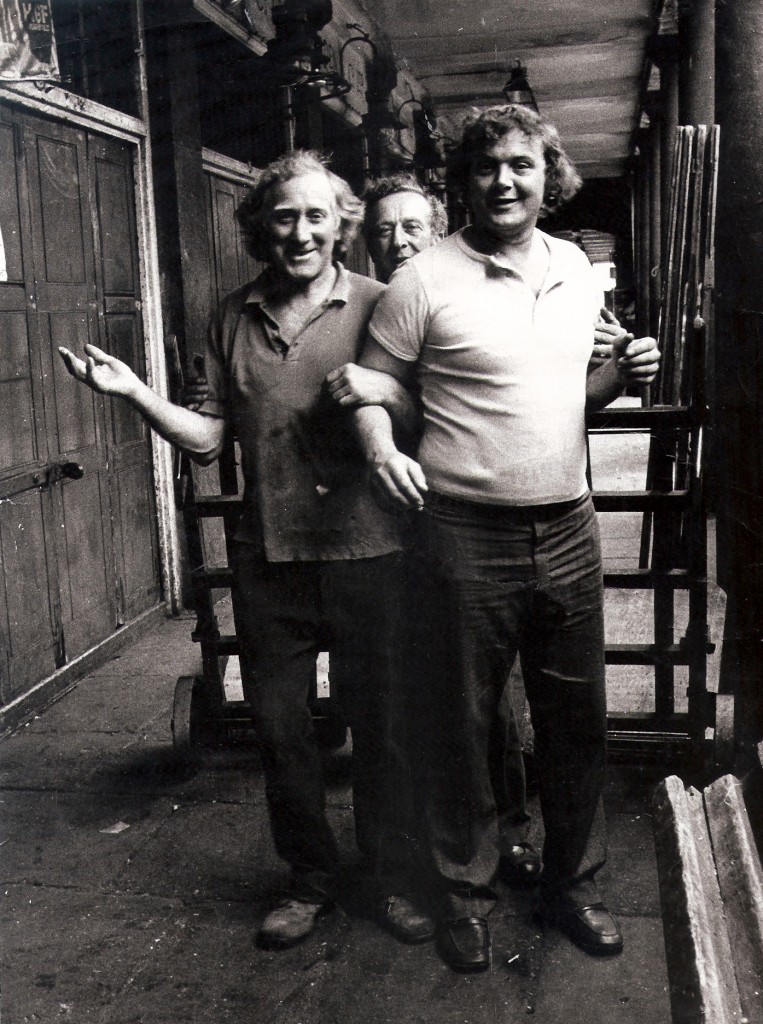Frenzy and the Necktie Strangler
In the summer of 1971, I worked in Covent Garden Market as a porter. It was a good way to earn money during my summer break from university. It also offered me the chance to observe Alfred Hitchcock directing Frenzy.
Necktie Strangler?
One morning, as I was pulling a barrow down Bow Street, I noticed an Evening Standard billboard outside the Globe pub.
It proclaimed: ‘Necktie Strangler Strikes Again‘.
Again? News to me, I thought.
Then I looked across the road, and I caught sight of a man stood in a doorway on the corner of Russell Street. It was unmistakably Alfred Hitchcock.
The son of a greengrocer, and hence familiar with the workings of the market, Hitchcock spent many weeks filming Frenzy during that summer.
I would often spend my breakfast break watching him work, directing Barry Foster, who played the Necktie Strangler, and Jon Finch.
Hitchcock was meticulous and extremely demanding of his actors. I recall him shooting dozens of takes of each scene, with one notable exception.
Hitchcock’s Humour
It was around noon. I was unloading a lorry in the centre of the market, close to St. Paul’s Church.
Without warning, a number of police squad-cars appeared. The cars screeched to a halt. Doors opened and police rushed out.
More than a few porters panicked, thinking the Old Bill were about to nick everyone in sight. Yet I thought there was something odd. Because the cops, without exception, had excellent suntans.
Sure enough, Hitchcock stood in a nearby doorway. He was grinning from ear to ear; and there was no second take.

Alfred Hitchcock

Dad (left) and 2 other Covent Garden Market porters, 1972
The director had gambled on a one-take shot and he was lucky.
Several of the unsuspecting porters would not have been adverse to giving both him and his cast a ‘right-hander’. You crossed these guys at your peril, as film actor Richard Harris was to learn during that same summer.
Nine Elms
Several years later, after the market moved to Nine Elms in Vauxhall, the police carried out one of these raids for real.
Wide-scale theft of goods was becoming an economic threat to the existence of many firms.
One particular raid took place during the night-shift. The police made a number of arrests. Fortunately my father, who was there at the time, was not among them.
One of main suspects worked with my father. The man was immediately sacked.
However he was eventually tried in court and acquitted. Nonetheless his employer refused to reinstate him.
The Transport and General Workers Union (TGWU) demanded the man’s reinstatement. But the employers refused to budge, and so the union called for a strike.
It proved to be a bitter dispute. My father claimed that everyone in the market knew the man was guilty. Some porters spoke up against the TGWU position. But they were threatened with violence by other strikers. Car tires were slashed.
The dispute was eventually resolved. But some firms went out of business and a number of men lost their jobs.
My father never cared for Nine Elms in the same way he did for the old market. But it still held some attraction. Like his father before him, he spent more than fifty years working in the market.
He finally retired in his mid-seventies when ill health took its toll.
Although Frenzy is far from being one of Hitchcock’s best, the film is a good reminder of the market in its heyday. It was a wonderful place, and populated by some extraordinary characters. It is greatly missed by those who knew it.